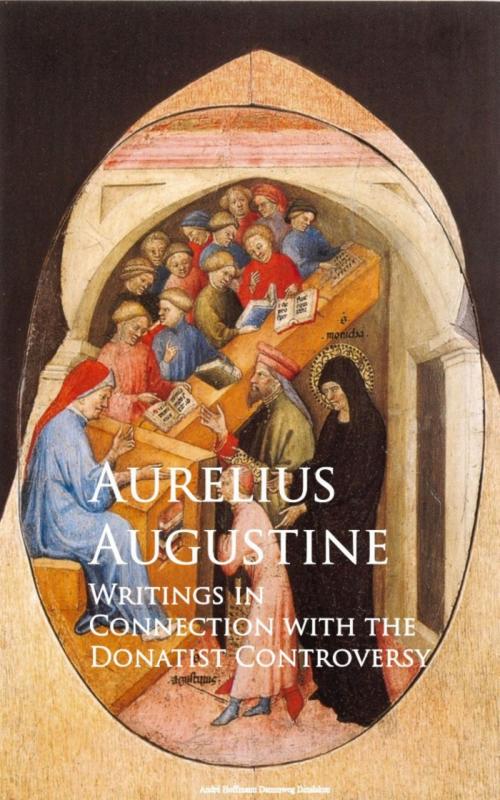Writings in Connection with the Donatist Controversy
Nonfiction, Religion & Spirituality, Philosophy| Author: | Aurelius Augustine | ISBN: | 9783736415171 |
| Publisher: | anboco | Publication: | September 7, 2016 |
| Imprint: | Language: | English |
| Author: | Aurelius Augustine |
| ISBN: | 9783736415171 |
| Publisher: | anboco |
| Publication: | September 7, 2016 |
| Imprint: | |
| Language: | English |
The schism of the Donatists, with which the treatises in the present volume are concerned, arose indirectly out of the persecution under Diocletian at the beginning of the fourth century. At that time Mensurius, bishop of Carthage, and his archdeacon Cæcilianus, had endeavoured to check the fanatical spirit in which many of the Christians courted martyrdom; and consequently, on the death of Mensurius in 311, and the elevation of Cæcilianus to the see of Carthage in his place, the opposing party, alleging that Felix, bishop of Aptunga, by whom Cæcilianus had been consecrated, had been a traditor, and that therefore his consecration was invalid, set up against him Majorinus, who was succeeded in 315 by Donatus. The party had by this time gained strength, through the professions that they made of extreme purity in the discipline which they maintained, and had gone so far, under the advice of another Donatus, bishop of Casæ Nigræ in Numidia, as to accuse Cæcilianus before the Roman Emperor Constantine,—thus setting the first precedent for referring a spiritual cause to the decision of a civil magistrate. Constantine accepted the appeal, and in 313 the matter was laid for decision before Melchiades, bishop of Rome, and three bishops of the province of Gaul. They decided in favour of the validity of the consecration of Cæcilianus; and a similar verdict was given by a council held at Arles, by direction of the Emperor, in the following year. The party of Majorinus then appealed to the personal judgment of the Emperor, which was likewise given against them, not without strong expressions of his anger at their pertinacity. This was followed by severe laws directed against their schism; but so far from crushing them, the attack seemed only to increase their enthusiasm and develope their resources.
The schism of the Donatists, with which the treatises in the present volume are concerned, arose indirectly out of the persecution under Diocletian at the beginning of the fourth century. At that time Mensurius, bishop of Carthage, and his archdeacon Cæcilianus, had endeavoured to check the fanatical spirit in which many of the Christians courted martyrdom; and consequently, on the death of Mensurius in 311, and the elevation of Cæcilianus to the see of Carthage in his place, the opposing party, alleging that Felix, bishop of Aptunga, by whom Cæcilianus had been consecrated, had been a traditor, and that therefore his consecration was invalid, set up against him Majorinus, who was succeeded in 315 by Donatus. The party had by this time gained strength, through the professions that they made of extreme purity in the discipline which they maintained, and had gone so far, under the advice of another Donatus, bishop of Casæ Nigræ in Numidia, as to accuse Cæcilianus before the Roman Emperor Constantine,—thus setting the first precedent for referring a spiritual cause to the decision of a civil magistrate. Constantine accepted the appeal, and in 313 the matter was laid for decision before Melchiades, bishop of Rome, and three bishops of the province of Gaul. They decided in favour of the validity of the consecration of Cæcilianus; and a similar verdict was given by a council held at Arles, by direction of the Emperor, in the following year. The party of Majorinus then appealed to the personal judgment of the Emperor, which was likewise given against them, not without strong expressions of his anger at their pertinacity. This was followed by severe laws directed against their schism; but so far from crushing them, the attack seemed only to increase their enthusiasm and develope their resources.















